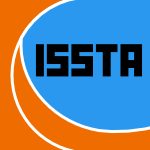105 papers:
 DATE-2015-ChenLH #approximate #reliability
DATE-2015-ChenLH #approximate #reliability- An approximate voting scheme for reliable computing (KC, FL, JH), pp. 293–296.
 HT-2015-WeningerJG #case study #random
HT-2015-WeningerJG #case study #random- Random Voting Effects in Social-Digital Spaces: A Case Study of Reddit Post Submissions (TW, TJJ, MG), pp. 293–297.
 MSR-2015-GantayatDPMS #stack overflow
MSR-2015-GantayatDPMS #stack overflow- The Synergy between Voting and Acceptance of Answers on StackOverflow — Or the Lack Thereof (NG, PD, RP, SM, VSS), pp. 406–409.
 CHI-2015-KoemanKR #approach #distributed #exclamation #quote #visualisation
CHI-2015-KoemanKR #approach #distributed #exclamation #quote #visualisation- “Everyone Is Talking about It!”: A Distributed Approach to Urban Voting Technology and Visualisations (LK, VK, YR), pp. 3127–3136.
 CSCW-2015-ZouMP #behaviour
CSCW-2015-ZouMP #behaviour- Strategic Voting Behavior in Doodle Polls (JYZ, RM, DCP), pp. 464–472.
 ICML-2015-ShahZP #crowdsourcing
ICML-2015-ShahZP #crowdsourcing- Approval Voting and Incentives in Crowdsourcing (NBS, DZ, YP), pp. 10–19.
 ICALP-v2-2014-CooperER #distributed #power of
ICALP-v2-2014-CooperER #distributed #power of- The Power of Two Choices in Distributed Voting (CC, RE, TR), pp. 435–446.
 CSCW-2014-MaruyamaRDSF #how #hybrid #twitter
CSCW-2014-MaruyamaRDSF #how #hybrid #twitter- Hybrid media consumption: how tweeting during a televised political debate influences the vote decision (MM, SPR, SKD, BS, HAF), pp. 1422–1432.
 HIMI-DE-2014-SugayaNT #clustering #recognition #using
HIMI-DE-2014-SugayaNT #clustering #recognition #using- Enhancement of Accuracy of Hand Shape Recognition Using Color Calibration by Clustering Scheme and Majority Voting Method (TS, HN, HT), pp. 251–260.
 ICPR-2014-BalntasTM #detection
ICPR-2014-BalntasTM #detection- Improving Object Tracking with Voting from False Positive Detections (VB, LT, KM), pp. 1928–1933.
 ICPR-2014-Dahllof #classification
ICPR-2014-Dahllof #classification- Scribe Attribution for Early Medieval Handwriting by Means of Letter Extraction and Classification and a Voting Procedure for Larger Pieces (MD), pp. 1910–1915.
 ICPR-2014-JangLSK #automation #classification #multi #using #video
ICPR-2014-JangLSK #automation #classification #multi #using #video- Automatic Video Genre Classification Using Multiple SVM Votes (WDJ, CL, JYS, CSK), pp. 2655–2660.
 KDD-2014-GuSJWC #estimation #network #topic
KDD-2014-GuSJWC #estimation #network #topic- Topic-factorized ideal point estimation model for legislative voting network (YG, YS, NJ, BW, TC), pp. 183–192.
 IJCAR-2014-Cortier #how #logic
IJCAR-2014-Cortier #how #logic- Electronic Voting: How Logic Can Help (VC), pp. 16–25.
 ICSM-2013-RomanoP #towards
ICSM-2013-RomanoP #towards- Towards a Weighted Voting System for Q&A Sites (DR, MP), pp. 368–371.
 IFM-2013-MoranHS #automation #verification
IFM-2013-MoranHS #automation #verification- Automated Anonymity Verification of the ThreeBallot Voting System (MM, JH, SS), pp. 94–108.
 HCI-UC-2013-HarleyKRBBPHF #evaluation #web
HCI-UC-2013-HarleyKRBBPHF #evaluation #web- The Evaluation of a Voting Web Based Application (LH, KK, JR, CB, AB, CP, MH, WBF), pp. 285–294.
 OCSC-2013-Popescu13b #problem #recommendation
OCSC-2013-Popescu13b #problem #recommendation- Group Recommender Systems as a Voting Problem (GP), pp. 412–421.
 ICML-c2-2013-UrvoyCFN
ICML-c2-2013-UrvoyCFN- Generic Exploration and K-armed Voting Bandits (TU, FC, RF, SN), pp. 91–99.
 SEKE-2013-CabralSC #framework
SEKE-2013-CabralSC #framework- Framework for digital voting systems (S) (PDC, RPeS, RSdC), pp. 715–720.
 SAC-2013-JancewiczKMRS #execution
SAC-2013-JancewiczKMRS #execution- Malicious takeover of voting systems: arbitrary code execution on optical scan voting terminals (RJJ, AK, LDM, AR, AAS), pp. 1816–1823.
 CADE-2013-BeckertGS #algorithm #logic
CADE-2013-BeckertGS #algorithm #logic- Analysing Vote Counting Algorithms via Logic — And Its Application to the CADE Election Scheme (BB, RG, CS), pp. 135–144.
 CHI-2012-TaylorMBMREFWO #community #named
CHI-2012-TaylorMBMREFWO #community #named- Viewpoint: empowering communities with situated voting devices (NT, JM, ABR, JM, JR, PE, DMF, PCW, PO), pp. 1361–1370.
 ICPR-2012-IshidaKKN #generative #recognition #using
ICPR-2012-IshidaKKN #generative #recognition #using- Road marking recognition for map generation using sparse tensor voting (HI, KK, YK, TN), pp. 1132–1135.
 ICPR-2012-NikanA #recognition #using
ICPR-2012-NikanA #recognition #using- Human face recognition under occlusion using LBP and entropy weighted voting (SN, MA), pp. 1699–1702.
 SIGIR-2012-ChenDWY #community
SIGIR-2012-ChenDWY #community- Vote calibration in community question-answering systems (BCC, AD, XW, JY), pp. 781–790.
 SIGIR-2012-HongLYZZ #automation #novel #what
SIGIR-2012-HongLYZZ #automation #novel #what- What reviews are satisfactory: novel features for automatic helpfulness voting (YH, JL, JMY, QZ, GZ), pp. 495–504.
 SAC-2012-DavtyanKMRS #encryption
SAC-2012-DavtyanKMRS #encryption- Integrity of electronic voting systems: fallacious use of cryptography (SD, AK, LM, AR, AAS), pp. 1486–1493.
 ICDAR-2011-SmithGSL #evaluation
ICDAR-2011-SmithGSL #evaluation- Evaluation of Voting with Form Dropout Techniques for Ballot Vote Counting (EHBS, SG, RS, DPL), pp. 473–477.
 ICML-2011-RoyLM #bound #polynomial #source code
ICML-2011-RoyLM #bound #polynomial #source code- From PAC-Bayes Bounds to Quadratic Programs for Majority Votes (JFR, FL, MM), pp. 649–656.
 ICPR-2010-DinhPLL #clustering
ICPR-2010-DinhPLL #clustering- Tensor Voting Based Color Clustering (TND, JP, CL, GL), pp. 597–600.
 ICPR-2010-MorenoGP #image #robust #segmentation
ICPR-2010-MorenoGP #image #robust #segmentation- Robust Color Image Segmentation through Tensor Voting (RM, MAG, DP), pp. 3372–3375.
 ICPR-2010-SirmacekU #detection #network #using
ICPR-2010-SirmacekU #detection #network #using- Road Network Extraction Using Edge Detection and Spatial Voting (BS, CÜ), pp. 3113–3116.
 KEOD-2010-LeraJP #algorithm #ambiguity #concept #ontology #semantics
KEOD-2010-LeraJP #algorithm #ambiguity #concept #ontology #semantics- Unsupervised Algorithm for the Concept Disambiguation in Ontologies — Semantic Rules and Voting System to Determine Suitable Senses (IL, CJ, RP), pp. 388–391.
 RecSys-2010-DeryKRS #nondeterminism #recommendation
RecSys-2010-DeryKRS #nondeterminism #recommendation- Iterative voting under uncertainty for group recommender systems (LND, MK, LR, BS), pp. 265–268.
 HCI-VAD-2009-ChisnellBLL #protocol #usability
HCI-VAD-2009-ChisnellBLL #protocol #usability- Usability for Poll Workers: A Voting System Usability Test Protocol (DC, KB, SJL, SL), pp. 458–467.
 CIKM-2009-AchananuparpYC #using
CIKM-2009-AchananuparpYC #using- Using negative voting to diversify answers in non-factoid question answering (PA, CCY, XC), pp. 1681–1684.
 CIKM-2009-BoldiBCV #network #social
CIKM-2009-BoldiBCV #network #social- Voting in social networks (PB, FB, CC, SV), pp. 777–786.
 CIKM-2009-NusselderPSM #information management #people #web
CIKM-2009-NusselderPSM #information management #people #web- Helping people to choose for whom to vote. a web information system for the 2009 European elections (AN, HP, AS, MM), pp. 2095–2096.
 SAC-2009-DavtyanKKMNRSSS
SAC-2009-DavtyanKKMNRSSS- Taking total control of voting systems: firmware manipulations on an optical scan voting terminal (SD, SK, AK, LDM, NCN, AR, AS, NS, AAS), pp. 2049–2053.
 ITiCSE-2008-Esponda #mobile #on the fly
ITiCSE-2008-Esponda #mobile #on the fly- Electronic voting on-the-fly with mobile devices (ME), pp. 93–97.
 CHI-2008-EverettGBWDST #performance
CHI-2008-EverettGBWDST #performance- Electronic voting machines versus traditional methods: improved preference, similar performance (SPE, KKG, MDB, DSW, KD, DS, TT), pp. 883–892.
 KR-2008-PiniRVW #nondeterminism
KR-2008-PiniRVW #nondeterminism- Dealing with Incomplete Agents’ Preferences and an Uncertain Agenda in Group Decision Making via Sequential Majority Voting (MSP, FR, KBV, TW), pp. 571–578.
 SIGIR-2008-LiuGLZMHL #named #rank #web
SIGIR-2008-LiuGLZMHL #named #rank #web- BrowseRank: letting web users vote for page importance (YL, BG, TYL, YZ, ZM, SH, HL), pp. 451–458.
 SAC-2008-ZuqueteA
SAC-2008-ZuqueteA- Verifiable anonymous vote submission (AZ, FA), pp. 2159–2166.
 ISSTA-2008-BalzarottiBCFKRVV #security #testing
ISSTA-2008-BalzarottiBCFKRVV #security #testing- Are your votes really counted?: testing the security of real-world electronic voting systems (DB, GB, MC, VF, RAK, WKR, FV, GV), pp. 237–248.
 CASE-2007-ZhangBGL #feature model #hybrid #monitoring
CASE-2007-ZhangBGL #feature model #hybrid #monitoring- A Hybrid Model with a Weighted Voting Scheme for Feature Selection in Machinery Condition Monitoring (KZ, ADB, FG, YL), pp. 424–429.
 SEFM-2007-CansellGM #verification
SEFM-2007-CansellGM #verification- Formal verification of tamper-evident storage for e-voting (DC, JPG, DM), pp. 329–338.
 CHI-2007-ByrneGE #usability
CHI-2007-ByrneGE #usability- Usability of voting systems: baseline data for paper, punch cards, and lever machines (MDB, KKG, SPE), pp. 171–180.
 DocEng-2006-Haas
DocEng-2006-Haas- Engineering better voting systems (BH), pp. 56–58.
 ICEIS-DISI-2006-Liptrott #question
ICEIS-DISI-2006-Liptrott #question- Perhaps a Recipe for Change? — Will E-Voting have the Desired Effect? (ML), pp. 232–238.
 CIKM-2006-MacdonaldO #adaptation #data fusion
CIKM-2006-MacdonaldO #adaptation #data fusion- Voting for candidates: adapting data fusion techniques for an expert search task (CM, IO), pp. 387–396.
 ECIR-2006-YaoWLLM #layout #ranking #visual notation #web
ECIR-2006-YaoWLLM #layout #ranking #visual notation #web- Ranking Web News Via Homepage Visual Layout and Cross-Site Voting (JY, JW, ZL, ML, WYM), pp. 131–142.
 ICPR-v1-2006-NegriCMP #algorithm #classification
ICPR-v1-2006-NegriCMP #algorithm #classification- An Oriented-Contour Point Based Voting Algorithm for Vehicle Type Classification (PN, XC, MM, RP), pp. 574–577.
 ICPR-v2-2006-Ekbal #classification #predict #using
ICPR-v2-2006-Ekbal #classification #predict #using- Improvement of Prediction Accuracy Using Discretization and Voting Classifier (AE), pp. 695–698.
 ICPR-v2-2006-KimYK #robust
ICPR-v2-2006-KimYK #robust- Background Robust Object Labeling by Voting of Weight-Aggregated Local Features (SK, KJY, ISK), pp. 219–222.
 ICPR-v3-2006-MinM #gpu
ICPR-v3-2006-MinM #gpu- Tensor Voting Accelerated by Graphics Processing Units (GPU) (CM, GGM), pp. 1103–1106.
 ICPR-v3-2006-TaiTT #2d #image #multi
ICPR-v3-2006-TaiTT #2d #image #multi- Simultaneous Image Denoising and Compression by Multiscale 2D Tensor Voting (YWT, WST, CKT), pp. 818–821.
 ICPR-v4-2006-TianK06b #automation #distance #multi
ICPR-v4-2006-TianK06b #automation #distance #multi- Voting Weighted Modified Hausdorff Distance Through Multiscale Space for Automatic Image-Map Registration (LT, SiK), pp. 837–840.
 KDD-2006-CarvalhoC #feature model #learning #online #performance
KDD-2006-CarvalhoC #feature model #learning #online #performance- Single-pass online learning: performance, voting schemes and online feature selection (VRC, WWC), pp. 548–553.
 CAV-2006-Dill
CAV-2006-Dill- I Think I Voted: E-Voting vs. Democracy (DLD), p. 2.
 ICDAR-2005-NakaiKI #documentation #image #invariant #retrieval
ICDAR-2005-NakaiKI #documentation #image #invariant #retrieval- Camera-Based Document Image Retrieval as Voting for Partial Signatures of Projective Invariants (TN, KK, MI), pp. 379–383.
 ITiCSE-2005-ArmenM #education #risk management
ITiCSE-2005-ArmenM #education #risk management- Teaching about the risks of electronic voting technology (CA, RM), pp. 227–231.
 ITiCSE-2005-Jones
ITiCSE-2005-Jones- The pedagogic opportunities of touch-screen voting (MJ), pp. 223–226.
 ITiCSE-2005-Penha-Lopes #open source #question #why
ITiCSE-2005-Penha-Lopes #open source #question #why- Why use an open source e-voting system? (JMPL), p. 412.
 ESOP-2005-KremerR #analysis #protocol #π-calculus
ESOP-2005-KremerR #analysis #protocol #π-calculus- Analysis of an Electronic Voting Protocol in the Applied π Calculus (SK, MR), pp. 186–200.
 ECIR-2005-ChenDWLZ #feature model
ECIR-2005-ChenDWLZ #feature model- AP-Based Borda Voting Method for Feature Extraction in TRECVID-2004 (LC, DD, DW, FL, BZ), pp. 568–570.
 ICEIS-v2-2004-VeskiojaV #problem
ICEIS-v2-2004-VeskiojaV #problem- Majority Voting in Stable Marriage Problem with Couples (TV, LV), pp. 442–447.
 ICPR-v1-2004-YangPB #locality
ICPR-v1-2004-YangPB #locality- Localization of Saliency through Iterative Voting (QY, BP, MHBH), pp. 63–66.
 ICPR-v1-2004-ZouariHLA #classification #performance #simulation
ICPR-v1-2004-ZouariHLA #classification #performance #simulation- Simulating Classifier Ensembles of Fixed Diversity for Studying Plurality Voting Performance (HZ, LH, YL, AMA), pp. 232–235.
 ICPR-v3-2004-WangLL #analysis #towards
ICPR-v3-2004-WangLL #analysis #towards- Tensor Voting Toward Feature Space Analysis (JW, HL, QL), pp. 462–465.
 ICDAR-2003-BhattacharyaC #multi #recognition
ICDAR-2003-BhattacharyaC #multi #recognition- A Majority Voting Scheme for Multiresolution Recognition of Handprinted Numerals (UB, BBC), pp. 16–20.
 CHI-2003-BedersonLSHN #usability
CHI-2003-BedersonLSHN #usability- Electronic voting system usability issues (BBB, BL, RMS, PSH, RGN), pp. 145–152.
 ICEIS-v4-2003-ProsserKK #experience #implementation
ICEIS-v4-2003-ProsserKK #experience #implementation- Implementing an Internet-Based Voting System for Public Elections — A Project Experience (AP, RK, RK), pp. 28–33.
 KDD-2003-LeungP #empirical
KDD-2003-LeungP #empirical- Empirical comparisons of various voting methods in bagging (KTL, DSPJ), pp. 595–600.
 SAC-2003-LeeLTY #identification
SAC-2003-LeeLTY #identification- Identify Amino Acid Candidates Critical for Function of Rat Imidase by Cross-reference Voting in Imidase SuperFamily (CL, YtL, CYT, YSY), pp. 127–134.
 SOSP-2003-ManiatisRRBGM
SOSP-2003-ManiatisRRBGM- Preserving peer replicas by rate-limited sampled voting (PM, DSHR, MR, MB, TJG, YM), pp. 44–59.
 ICPR-v2-2002-MassadBM #image
ICPR-v2-2002-MassadBM #image- Perceptual Grouping in Grey-Level Images by Combination of Gabor Filtering and Tensor Voting (AM, MB, BM), pp. 677–680.
 ICPR-v2-2002-StefanoCM #adaptation #classification #multi
ICPR-v2-2002-StefanoCM #adaptation #classification #multi- An Adaptive Weighted Majority Vote Rule for Combining Multiple Classifiers (CDS, ADC, AM), pp. 192–195.
 ICPR-v3-2002-MaalmiEBVDG #detection #fault #locality #using
ICPR-v3-2002-MaalmiEBVDG #detection #fault #locality #using- Crack Defect Detection and Localization Using Genetic-Based Inverse Voting Hough Transform (KM, AEO, RB, LFCLYV, AD, PG), pp. 257–260.
 ICPR-v3-2002-MordohaiM #multi #using
ICPR-v3-2002-MordohaiM #multi #using- Perceptual Grouping for Multiple View Stereo Using Tensor Voting (PM, GGM), pp. 639–644.
 ICPR-v3-2002-NicolescuM #segmentation
ICPR-v3-2002-NicolescuM #segmentation- 4-D Voting for Matching, Densification and Segmentation into Motion Layers (MN, GGM), pp. 303–308.
 ICPR-v4-2002-KangCM #estimation #image #robust #using
ICPR-v4-2002-KangCM #estimation #image #robust #using- Robust Affine Motion Estimation in Joint Image Space Using Tensor Voting (EYEK, IC, GGM), pp. 256–259.
 KR-2002-Lang #combinator #representation
KR-2002-Lang #combinator #representation- From Preference Representation to Combinatorial Vote (JL), pp. 277–290.
 SEKE-2002-VanT #collaboration #education #evaluation #named #process
SEKE-2002-VanT #collaboration #education #evaluation #named #process- FAQshare: a frequently asked questions voting system as a collaboration and evaluation tool in teaching activities (HLV, AT), pp. 557–560.
 HT-2001-ZhuHH #named #web
HT-2001-ZhuHH #named #web- PageRate: counting Web users’ votes (JZ, JH, JGH), pp. 131–132.
 ITiCSE-2001-VanT #evaluation #optimisation #student
ITiCSE-2001-VanT #evaluation #optimisation #student- A “frequently asked questions” management system that supports voting, built for student evaluation and optimization purposes (HLV, AT), p. 184.
 ICEIS-v2-2001-ProsserM #internet
ICEIS-v2-2001-ProsserM #internet- Electronic Voting Via the Internet (AP, RMT), pp. 1061–1066.
 ICML-2001-NgJ #classification #convergence #feature model
ICML-2001-NgJ #classification #convergence #feature model- Convergence rates of the Voting Gibbs classifier, with application to Bayesian feature selection (AYN, MIJ), pp. 377–384.
 MLDM-2001-ImiyaI #detection #statistics
MLDM-2001-ImiyaI #detection #statistics- Statistics of Flow Vectors and Its Application to the Voting Method for the Detection of Flow Fields (AI, KI), pp. 293–306.
 ICML-2000-KubatC #classification #nearest neighbour #subclass
ICML-2000-KubatC #classification #nearest neighbour #subclass- Voting Nearest-Neighbor Subclassifiers (MK, MCJ), pp. 503–510.
 ICML-2000-Li #learning #online
ICML-2000-Li #learning #online- Selective Voting for Perception-like Online Learning (YL), pp. 559–566.
 ICPR-v1-2000-OkutomiS #image #using
ICPR-v1-2000-OkutomiS #image #using- Shape Recovery of Rotating Object Using Weighted Voting of Spatio-Temporal Image (MO, SS), pp. 1790–1793.
 ICPR-v3-2000-KornprobstM #2d #approach
ICPR-v3-2000-KornprobstM #2d #approach- A 2D + t Tensor Voting Based Approach for Tracking (PK, GGM), pp. 7104–7107.
 ICDAR-1999-KlinkJ #named
ICDAR-1999-KlinkJ #named- MergeLayouts: Overcoming Faulty Segmentations by a Comprehensive Voting of Commercial OCR Devices (SK, TJ), pp. 386–389.
 ICDAR-1999-NishimuraKMN #algorithm #feature model #multi #recognition #using
ICDAR-1999-NishimuraKMN #algorithm #feature model #multi #recognition #using- Off-line Character Recognition using HMM by Multiple Directional Feature Extraction and Voting with Bagging Algorithm (HN, MK, MM, YN), pp. 49–52.
 ICALP-1997-HemaspaandraHR #analysis #parallel
ICALP-1997-HemaspaandraHR #analysis #parallel- Exact Analysis of Dodgson Elections: Lewis Carroll’s 1876 Voting System is Complete for Parallel Access to NP (EH, LAH, JR), pp. 214–224.
 ICML-1997-KohaviK
ICML-1997-KohaviK- Option Decision Trees with Majority Votes (RK, CK), pp. 161–169.
 ICML-1997-SchapireFBL #effectiveness
ICML-1997-SchapireFBL #effectiveness- Boosting the margin: A new explanation for the effectiveness of voting methods (RES, YF, PB, WSL), pp. 322–330.
 ICML-1995-ChanS #comparative #evaluation
ICML-1995-ChanS #comparative #evaluation- A Comparative Evaluation of Voting and Meta-learning on Partitioned Data (PKC, SJS), pp. 90–98.
 HPDC-1994-RammeK #scheduling
HPDC-1994-RammeK #scheduling- Scheduling a Metacomputer by an Implicit Voting System (FR, KK), pp. 106–113.
 STOC-1991-AspnesBFR #power of
STOC-1991-AspnesBFR #power of- The Expressive Power of Voting Polynomials (JA, RB, MLF, SR), pp. 402–409.
 SIGMOD-1987-JajodiaM
SIGMOD-1987-JajodiaM- Dynamic Voting (SJ, DM), pp. 227–238.
 VLDB-1987-JajodiaM #algorithm
VLDB-1987-JajodiaM #algorithm- Enhancements to the Voting Algorithm (SJ, DM), pp. 399–406.
 SOSP-1979-Gifford
SOSP-1979-Gifford- Weighted Voting for Replicated Data (DKG), pp. 150–162.
 DATE-2015-ChenLH #approximate #reliability
DATE-2015-ChenLH #approximate #reliability HT-2015-WeningerJG #case study #random
HT-2015-WeningerJG #case study #random MSR-2015-GantayatDPMS #stack overflow
MSR-2015-GantayatDPMS #stack overflow CHI-2015-KoemanKR #approach #distributed #exclamation #quote #visualisation
CHI-2015-KoemanKR #approach #distributed #exclamation #quote #visualisation CSCW-2015-ZouMP #behaviour
CSCW-2015-ZouMP #behaviour ICML-2015-ShahZP #crowdsourcing
ICML-2015-ShahZP #crowdsourcing ICALP-v2-2014-CooperER #distributed #power of
ICALP-v2-2014-CooperER #distributed #power of CSCW-2014-MaruyamaRDSF #how #hybrid #twitter
CSCW-2014-MaruyamaRDSF #how #hybrid #twitter HIMI-DE-2014-SugayaNT #clustering #recognition #using
HIMI-DE-2014-SugayaNT #clustering #recognition #using ICPR-2014-BalntasTM #detection
ICPR-2014-BalntasTM #detection ICPR-2014-Dahllof #classification
ICPR-2014-Dahllof #classification ICPR-2014-JangLSK #automation #classification #multi #using #video
ICPR-2014-JangLSK #automation #classification #multi #using #video KDD-2014-GuSJWC #estimation #network #topic
KDD-2014-GuSJWC #estimation #network #topic IJCAR-2014-Cortier #how #logic
IJCAR-2014-Cortier #how #logic ICSM-2013-RomanoP #towards
ICSM-2013-RomanoP #towards IFM-2013-MoranHS #automation #verification
IFM-2013-MoranHS #automation #verification HCI-UC-2013-HarleyKRBBPHF #evaluation #web
HCI-UC-2013-HarleyKRBBPHF #evaluation #web OCSC-2013-Popescu13b #problem #recommendation
OCSC-2013-Popescu13b #problem #recommendation ICML-c2-2013-UrvoyCFN
ICML-c2-2013-UrvoyCFN SEKE-2013-CabralSC #framework
SEKE-2013-CabralSC #framework SAC-2013-JancewiczKMRS #execution
SAC-2013-JancewiczKMRS #execution CADE-2013-BeckertGS #algorithm #logic
CADE-2013-BeckertGS #algorithm #logic CHI-2012-TaylorMBMREFWO #community #named
CHI-2012-TaylorMBMREFWO #community #named ICPR-2012-IshidaKKN #generative #recognition #using
ICPR-2012-IshidaKKN #generative #recognition #using ICPR-2012-NikanA #recognition #using
ICPR-2012-NikanA #recognition #using SIGIR-2012-ChenDWY #community
SIGIR-2012-ChenDWY #community SIGIR-2012-HongLYZZ #automation #novel #what
SIGIR-2012-HongLYZZ #automation #novel #what SAC-2012-DavtyanKMRS #encryption
SAC-2012-DavtyanKMRS #encryption ICDAR-2011-SmithGSL #evaluation
ICDAR-2011-SmithGSL #evaluation ICML-2011-RoyLM #bound #polynomial #source code
ICML-2011-RoyLM #bound #polynomial #source code ICPR-2010-DinhPLL #clustering
ICPR-2010-DinhPLL #clustering ICPR-2010-MorenoGP #image #robust #segmentation
ICPR-2010-MorenoGP #image #robust #segmentation ICPR-2010-SirmacekU #detection #network #using
ICPR-2010-SirmacekU #detection #network #using KEOD-2010-LeraJP #algorithm #ambiguity #concept #ontology #semantics
KEOD-2010-LeraJP #algorithm #ambiguity #concept #ontology #semantics RecSys-2010-DeryKRS #nondeterminism #recommendation
RecSys-2010-DeryKRS #nondeterminism #recommendation HCI-VAD-2009-ChisnellBLL #protocol #usability
HCI-VAD-2009-ChisnellBLL #protocol #usability CIKM-2009-AchananuparpYC #using
CIKM-2009-AchananuparpYC #using CIKM-2009-BoldiBCV #network #social
CIKM-2009-BoldiBCV #network #social CIKM-2009-NusselderPSM #information management #people #web
CIKM-2009-NusselderPSM #information management #people #web SAC-2009-DavtyanKKMNRSSS
SAC-2009-DavtyanKKMNRSSS ITiCSE-2008-Esponda #mobile #on the fly
ITiCSE-2008-Esponda #mobile #on the fly CHI-2008-EverettGBWDST #performance
CHI-2008-EverettGBWDST #performance KR-2008-PiniRVW #nondeterminism
KR-2008-PiniRVW #nondeterminism SIGIR-2008-LiuGLZMHL #named #rank #web
SIGIR-2008-LiuGLZMHL #named #rank #web SAC-2008-ZuqueteA
SAC-2008-ZuqueteA ISSTA-2008-BalzarottiBCFKRVV #security #testing
ISSTA-2008-BalzarottiBCFKRVV #security #testing CASE-2007-ZhangBGL #feature model #hybrid #monitoring
CASE-2007-ZhangBGL #feature model #hybrid #monitoring SEFM-2007-CansellGM #verification
SEFM-2007-CansellGM #verification CHI-2007-ByrneGE #usability
CHI-2007-ByrneGE #usability DocEng-2006-Haas
DocEng-2006-Haas ICEIS-DISI-2006-Liptrott #question
ICEIS-DISI-2006-Liptrott #question CIKM-2006-MacdonaldO #adaptation #data fusion
CIKM-2006-MacdonaldO #adaptation #data fusion ECIR-2006-YaoWLLM #layout #ranking #visual notation #web
ECIR-2006-YaoWLLM #layout #ranking #visual notation #web ICPR-v1-2006-NegriCMP #algorithm #classification
ICPR-v1-2006-NegriCMP #algorithm #classification ICPR-v2-2006-Ekbal #classification #predict #using
ICPR-v2-2006-Ekbal #classification #predict #using ICPR-v2-2006-KimYK #robust
ICPR-v2-2006-KimYK #robust ICPR-v3-2006-MinM #gpu
ICPR-v3-2006-MinM #gpu ICPR-v3-2006-TaiTT #2d #image #multi
ICPR-v3-2006-TaiTT #2d #image #multi ICPR-v4-2006-TianK06b #automation #distance #multi
ICPR-v4-2006-TianK06b #automation #distance #multi KDD-2006-CarvalhoC #feature model #learning #online #performance
KDD-2006-CarvalhoC #feature model #learning #online #performance CAV-2006-Dill
CAV-2006-Dill ICDAR-2005-NakaiKI #documentation #image #invariant #retrieval
ICDAR-2005-NakaiKI #documentation #image #invariant #retrieval ITiCSE-2005-ArmenM #education #risk management
ITiCSE-2005-ArmenM #education #risk management ITiCSE-2005-Jones
ITiCSE-2005-Jones ITiCSE-2005-Penha-Lopes #open source #question #why
ITiCSE-2005-Penha-Lopes #open source #question #why ESOP-2005-KremerR #analysis #protocol #π-calculus
ESOP-2005-KremerR #analysis #protocol #π-calculus ECIR-2005-ChenDWLZ #feature model
ECIR-2005-ChenDWLZ #feature model ICEIS-v2-2004-VeskiojaV #problem
ICEIS-v2-2004-VeskiojaV #problem ICPR-v1-2004-YangPB #locality
ICPR-v1-2004-YangPB #locality ICPR-v1-2004-ZouariHLA #classification #performance #simulation
ICPR-v1-2004-ZouariHLA #classification #performance #simulation ICPR-v3-2004-WangLL #analysis #towards
ICPR-v3-2004-WangLL #analysis #towards ICDAR-2003-BhattacharyaC #multi #recognition
ICDAR-2003-BhattacharyaC #multi #recognition CHI-2003-BedersonLSHN #usability
CHI-2003-BedersonLSHN #usability ICEIS-v4-2003-ProsserKK #experience #implementation
ICEIS-v4-2003-ProsserKK #experience #implementation KDD-2003-LeungP #empirical
KDD-2003-LeungP #empirical SAC-2003-LeeLTY #identification
SAC-2003-LeeLTY #identification SOSP-2003-ManiatisRRBGM
SOSP-2003-ManiatisRRBGM ICPR-v2-2002-MassadBM #image
ICPR-v2-2002-MassadBM #image ICPR-v2-2002-StefanoCM #adaptation #classification #multi
ICPR-v2-2002-StefanoCM #adaptation #classification #multi ICPR-v3-2002-MaalmiEBVDG #detection #fault #locality #using
ICPR-v3-2002-MaalmiEBVDG #detection #fault #locality #using ICPR-v3-2002-MordohaiM #multi #using
ICPR-v3-2002-MordohaiM #multi #using ICPR-v3-2002-NicolescuM #segmentation
ICPR-v3-2002-NicolescuM #segmentation ICPR-v4-2002-KangCM #estimation #image #robust #using
ICPR-v4-2002-KangCM #estimation #image #robust #using KR-2002-Lang #combinator #representation
KR-2002-Lang #combinator #representation SEKE-2002-VanT #collaboration #education #evaluation #named #process
SEKE-2002-VanT #collaboration #education #evaluation #named #process HT-2001-ZhuHH #named #web
HT-2001-ZhuHH #named #web ITiCSE-2001-VanT #evaluation #optimisation #student
ITiCSE-2001-VanT #evaluation #optimisation #student ICEIS-v2-2001-ProsserM #internet
ICEIS-v2-2001-ProsserM #internet ICML-2001-NgJ #classification #convergence #feature model
ICML-2001-NgJ #classification #convergence #feature model MLDM-2001-ImiyaI #detection #statistics
MLDM-2001-ImiyaI #detection #statistics ICML-2000-KubatC #classification #nearest neighbour #subclass
ICML-2000-KubatC #classification #nearest neighbour #subclass ICML-2000-Li #learning #online
ICML-2000-Li #learning #online ICPR-v1-2000-OkutomiS #image #using
ICPR-v1-2000-OkutomiS #image #using ICPR-v3-2000-KornprobstM #2d #approach
ICPR-v3-2000-KornprobstM #2d #approach ICDAR-1999-KlinkJ #named
ICDAR-1999-KlinkJ #named ICDAR-1999-NishimuraKMN #algorithm #feature model #multi #recognition #using
ICDAR-1999-NishimuraKMN #algorithm #feature model #multi #recognition #using ICALP-1997-HemaspaandraHR #analysis #parallel
ICALP-1997-HemaspaandraHR #analysis #parallel ICML-1997-KohaviK
ICML-1997-KohaviK ICML-1997-SchapireFBL #effectiveness
ICML-1997-SchapireFBL #effectiveness ICML-1995-ChanS #comparative #evaluation
ICML-1995-ChanS #comparative #evaluation HPDC-1994-RammeK #scheduling
HPDC-1994-RammeK #scheduling STOC-1991-AspnesBFR #power of
STOC-1991-AspnesBFR #power of SIGMOD-1987-JajodiaM
SIGMOD-1987-JajodiaM VLDB-1987-JajodiaM #algorithm
VLDB-1987-JajodiaM #algorithm SOSP-1979-Gifford
SOSP-1979-Gifford









